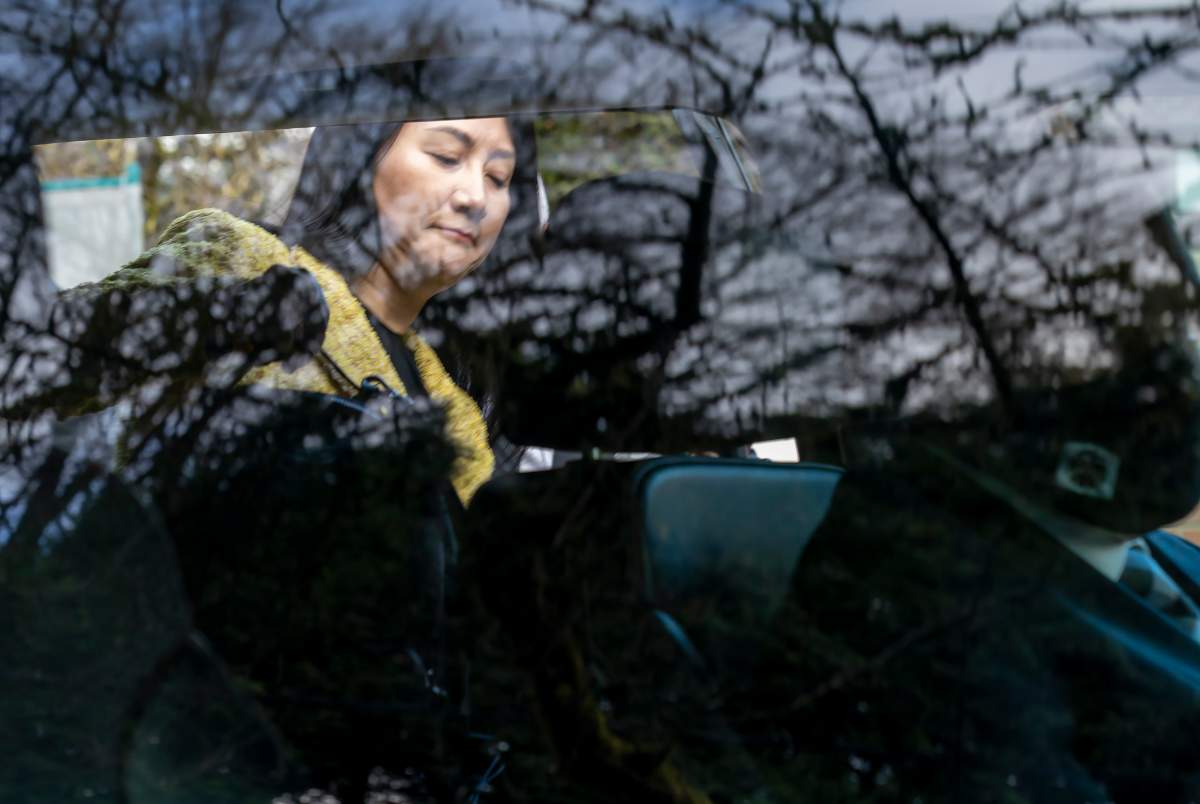A lawyer for Canada’s attorney general says RCMP did not need a search warrant to obtain the electronic devices of Huawei executive Meng Wanzhou or collect their serial numbers.

John Gibb-Carsley told the B.C. Supreme Court that Meng’s charter rights weren’t violated because her devices were seized as part of her arrest and the recording of the serial numbers days later was an extension of that.
Gibb-Carsley made the comments in response to claims from Meng’s legal team that the electronic serial numbers were improperly obtained because they were collected through a new search that needed judicial authorization.
It’s one of several ways they say Meng was subjected to an abuse of process surrounding her arrest at Vancouver’s airport in 2018.
She is wanted in the United States on fraud charges that both she and Huawei deny.
Meng’s team says the abuse is so egregious that proceedings in her extradition case should be stayed.

Get daily National news
“The collection of electronic serial numbers was a logical and necessary continuation” of the airport search, Gibb-Carsley said Friday.
The B.C. Supreme Court case is set to wrap up with an actual extradition or committal hearing in May.
Associate Chief Justice Heather Holmes is first hearing four branches of arguments over whether Meng was subjected to an abuse of process that would compromise the fairness of proceedings against her.
Another Crown lawyer, Marta Zemojtel, disputed accusations from Meng’s lawyers that members of the RCMP and Canada Border Services Agency took intentionally shoddy notes to obscure a covert criminal investigation.
Defence lawyer Richard Peck told the court this week that although officers testified that they understood proper note-taking to be part of their duties, there are noticeable gaps in the written record.
For example, no border officer took any note of a meeting with RCMP before the arrest where they decided Meng would undergo screening first, then be handed off to police.
Peck argued the lack of notes demonstrates an attempt to recast what happened, undermines the officers’ reliability as witnesses and amounts to a “destruction of evidence” that makes it difficult to get at the truth of what happened.
Zemojtel countered that Meng’s team is taking a “selective review” of the evidence.
There may be inconsistencies, but the officers were all forthcoming and candid when asked about absences, lapses of memory and information outside the scope of their knowledge, she said.
Most did not consider the meeting with RCMP to be a significant event until it became a topic in the abuse-of-process hearings, for example, so they didn’t take note of it, she said.
“We say the notes were broadly inconsistent, they weren’t perfect, but the witnesses your ladyship heard from are credible and the evidence can be relied upon by the court,” Zemojtel said.
The Crown is not arguing for a relaxation of the note-taking duty of officers, she said, but a ruling that takes into account the broader context of their duties that day.
“Inconsistencies do not in any way equate to lying or concealing what happened.”

















Comments
Comments closed.
Due to the sensitive and/or legal subject matter of some of the content on globalnews.ca, we reserve the ability to disable comments from time to time.
Please see our Commenting Policy for more.